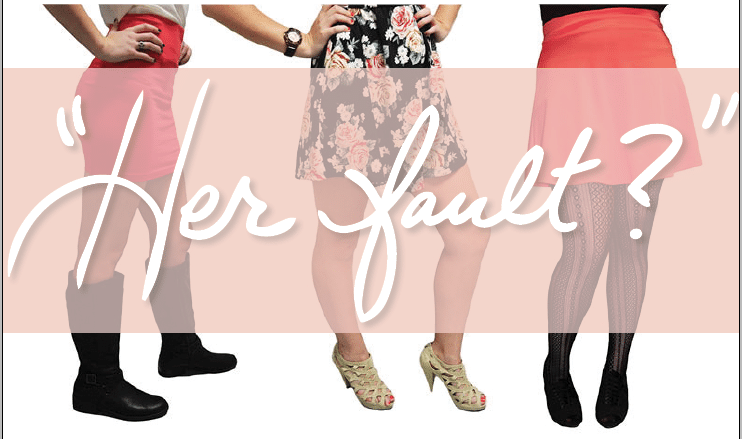Shiny school desks were haphazardly arranged in a circle as students trickled in, slowly filling the seats in the minutes before class begins.
“This is a really chill class,” one student whispered to her neighbor.
A blonde girl ate a bagel while reviewing her notes. A girl in sweatpants and a hoodie had her headphones in, creating a slight hum, the only noise in the room.
Only when professor Mary Mudd walked in, three minutes past the 4 p.m. start time, did the class begin to liven up. Mudd, in a black shirt and jeans, wore her curly, dark but graying hair in a low ponytail. She sat down in the circle to begin the day’s discussion on Gender in Communication. The discussion topic: the tendency to brush off the seriousness of sexual assault, referred to as rape culture. Her students threw out their opinions to her prompts.
“We kind of make it sound okay,” one student said on the acceptance of rape.
“She just laid there,” said another while discussing a story of a rape.
“She knew what she was getting herself into,” another added.
Mudd believed her students’ opinions were generally reflective of the university’s.
While rumors of women getting their drinks drugged at fraternity parties swirled on campus in September, and a recent Rolling Stone article put the University of Virginia under fire for the school’s attitude about consent, the topic of rape culture on college campuses has been in the national media.
In an unscientific, online survey from The Louisville Cardinal, 26 U of L students answered questions about their attitude toward rape. About two-thirds said they believed rape culture is prevalent at U of L.
“Does rape culture exist at U of L? Absolutely,” Mudd said.
Her experiences with students confirmed this. She is a professor and an adviser for Common Ground, a student group that discusses gender issues on campus.
While most students agreed rape culture exists at U of L, their definitions of the term varied. U of L graduate student Mandy Parente, who researches rape culture on college campuses and works for PEACC, said defining rape culture is a “hard question to answer.”
“It’s like a social norm, belittling rape and using it as a joke,” Parente said. “It’s just trying to make rape not as big of a deal as it is.”
Students in Mudd’s class took turns trying to pin down what rape culture is. One student, junior communication major Karly Stinnett, took Mudd’s class to fulfill a major requirement and to learn more about women’s rights.
“Rape culture is just our American society’s view on the way rape is accepted and seen as something that is not forced upon you, but is a choice,” Stinnett said.
Some of her classmates voiced similar ideas.
“Rape culture is basically the idea that when a woman is raped, she had something to do with the matter,” another one of Mudd’s students said.
“I think it is broader than that,” Mudd said.
The broadness of the concept can include victim- and slut-shaming. The first is the idea that sexual assault victims brought the act upon themselves, based on actions such as drinking alcohol or attending parties. The latter is the idea that a woman cannot be open about her sexual pursuits without public disapproval.
Mudd described a slut as someone who has crossed the socially-defined line of what is sexually acceptable for a specific gender.
Stinnett, a student in Mudd’s class, said these ideas are perpetuated on social media platforms like Instagram.
“People would go through and take peoples’ selfies or bikini pictures and repost them,” she said.
Stinnett said U of L students promote victim- and slut-shaming, but doesn’t think they’re doing it intentionally.
Mudd’s class discussed slut-shaming in an earlier class, when they watched hip-hop artist Nicki Minaj’s “Anaconda” music video. In the video, Minaj gives rapper Drake a lap dance. When he reaches toward her rear, she slaps his hand away.
Several of her students supported the idea that Minaj lost her right to reject his advances because of her actions.
“For most of the students, there is definitely this line that can’t be crossed and once you cross it, you have to follow through,” Mudd said.
Responses from The Cardinal’s survey tended to agree, that someone can be a tease without having to follow through.
“They might be a tease. But, hey, some people like to be teased,” one student said. “There’s absolutely nothing that says they have to go further.”
“We’re supposed to strive to be desirable to men, but if we appear desirable to men, then we’re sluts,” Mudd said. “Everything about our culture socially conditions girls to behave in a way that contributes to rape culture, because it sets up a constant ideal behavior that women can never achieve.”
Survey responses had a generally negative outlook on the word “slut.”
“I hate it,” one student responded. “I work at a bar downtown and people assume because I wear a tank top with spandex shorts and fishnets that it’s acceptable to call me that. Just because someone chooses to dress a certain way or have multiple sexual partners gives no one else the right to call them a slut.”
The idea of slut-shaming frequently overlaps with victim-shaming. Parente, the PEACC employee, thinks the two can combine and play a role in a victim’s decision to report a sexual assault.
“Fear is big part of it, not wanting to get the other person into trouble is a big part of it, but also not wanting to deal with people calling you a slut for being raped,” she said.
One perspective on victim-shaming is, if a victim has been drinking alcohol and gets raped, he or she is at fault. Eighty-six percent of survey responses disagreed, saying it isn’t the victim’s fault. Fourteen percent said the victim had something to do with it.
Though victim-shaming typically refers to how people react after a sexual assault, it can also refer to suggestions that people should take measures to prevent their own rape. Parente sees it in warnings like keeping your keys between your fingers.
“When we’re doing that, we’re telling women that it is your fault and you have to protect yourself, and we’re taking all of the blame off of the rapist and people that are actually committing a crime,” Parente said. “We would never do that with some other crime.”
This can lead to questions of who a rape victim can and cannot be, questions that sometimes make people feel like they weren’t actually raped.
“What happens is somebody says they were raped. They feel like they were raped, but their accusation of rape is considered false because they’re not considered victim,” Mudd said. “They don’t fit the profile.”
Mudd showed her class a video of a man assaulting a woman, and then a woman assaulting a man. She thinks their reaction shows how some people think a man can’t be a victim.
“When it looked like the woman was being assaulted, the women in the class scooted up to edge of their seat,” Mudd said. “As soon it was a guy being assaulted, they all started laughing.”
“If a woman is drunk, she is considered not able to give consent,” Mudd said to her class. “What if a man is drunk? Is he still able to rape? Is he any better at making decisions than she is?”
Several students responded by saying a drunk man would still be able to consent to sex.
“Men are taught that men can’t get raped, that it’s only females, it’s only weaklings that get raped,” Parente said.
Students who responded to the Cardinal’s survey said they believe men can be raped.
“Believing only a man can rape a woman is completely sexist and unfair,” one student responded.
Parente thinks that rape culture may seem more prevalent at colleges.
“Any time you get a large group of young people together, you’re going to get higher instances of people using common social terms together,” Parente said. “It probably seems that it is more common on a college campus.”
YikYak is an app that allows users to share posts anonymously, within a two-mile radius. Parente said some of the posts helped fuel rape culture.
“Until I got YikYak, I didn’t think it was that bad at U of L,” she said. “Some of the things I see that are very blatantly rape culture-y at U of L are like, ‘Oh, I raped that guy in “Call of Duty” last night’ or ‘Oh, I raped that test.'”
The app is community-driven, relying on a voting system, moderators and reports to determine which posts are appropriate, including posts that are openly sexist or promote of rape. In a recent interview with the Cardinal, YikYak Lead Community Developer Cam Mullen explained the moderation system.
“The first thing we have is the down vote, and once a post reaches the minus five down votes, it’s removed from the feed. That gets content off the app very quickly,” Mullen said.
On their end, YikYak’s team of moderators uses filters to check posts for “general inappropriate content.”
While students can get rid of inappropriate content, many posts are not deleted.
“It’s definitely here, it is definitely a pervasive thing,” Parente said about rape culture at U of L.
Stinnett, a non-traditional student, is older than most in Mudd’s class. Outside of class, Stinnett admitted to being shocked after hearing some of her’s classmates’ opinions, but also said she doesn’t see a lot being done to combat this mindset, with the exception being PEACC programs. Take Back the Night, an annual campus event focused on sexual assault awareness, was one prevention mechanism that came to her mind. Stinnett participated in the event in September.
“Some of (Take Back the Night) was uncomfortable, but that’s what needs to happen,” Stinnett said. “It needs to be an uncomfortable conversation.”
Parente presents the GreenDot program. It promotes being an active bystander in potentially risky situations, by calling authorities, otherwise standing between the victim and the perpetrator or making an argument toward people who minimize the seriousness of rape.
“Bystander intervention, a lot of times, focuses on the action of people, like if you’re at a bar and you see somebody slip something into somebody’s drink,” Parente said. “It is also important to realize that if somebody in your residence hall is like, ‘Hey, I raped this guy in “Call of Duty” last night,’ standing up and saying, ‘That’s not cool, I don’t appreciate that.’”
Parente also works with classes, students organizations and residence halls to educate students. She recounted a recent visit with residents where she explained how to get consent “without killing the mood.”
“People seem to think that asking for consent isn’t that good and awkward,” Parente said. “I get that, but raping somebody is even worse, so take two seconds to say, ‘Hey, do you like this?’ and then you’re good.”
Editor-in-Chief Simon Isham also contributed to this story.





